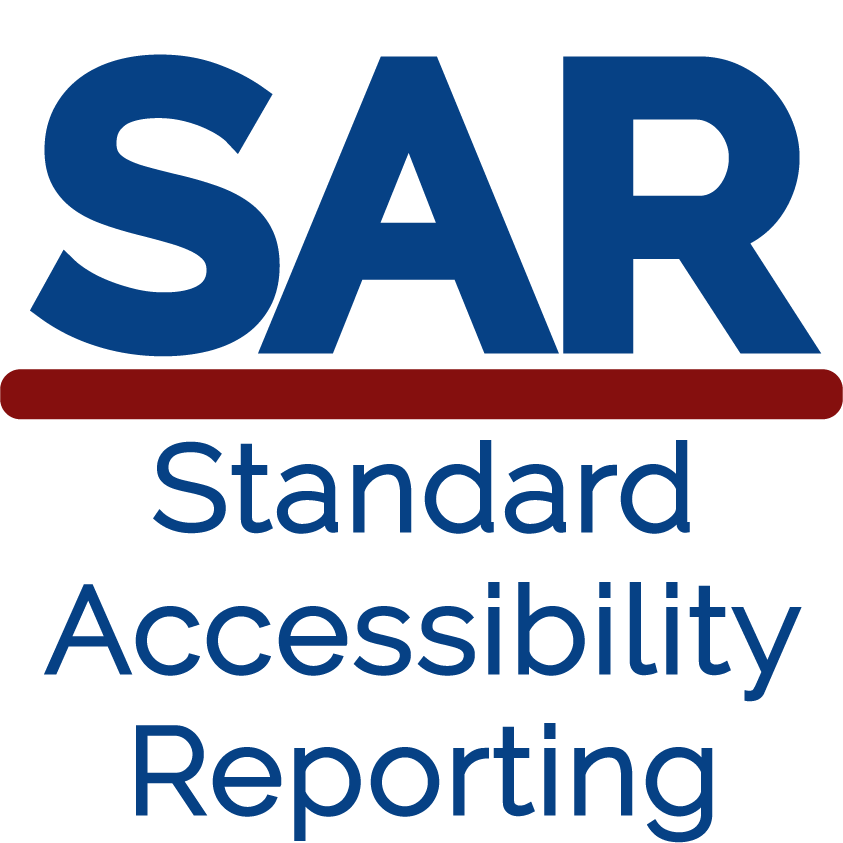Frequently Asked Questions
When you say “we” are SAR, who is we? Are you the government? Are you a standards body?
We are a newly formed nonprofit organization made up of members who have decided to join to further our collective goals. Professional membership is open to individuals and organizations working in the accessibility and technology field. We are not a governmental or quasi-governmental organization. We are creating industry consensus standards, which can be voluntarily adopted by any individual or group who wants to use them, free of charge. In many ways we are different from established standards bodies that utilize different business models, but we will still be creating new standards. Learn more about How we develop standards.
As someone with a disability I would like to contribute my experiences as a consumer in order to shape the needs / requirements for the standard. But do I have to pay to be a member in order to do this?
We welcome your participation! We have a Public Mailing List which is free to join, and we will from time to time send out surveys and requests for participants to help with providing feedback and input from consumers. Join the public mailing list on our ‘Contact Us’ page.
What is the scope of the products you are going to be standardizing accessibility requirements for – there are so many out there?
We are not setting out to standardize accessibility requirements for products. Instead, we are setting out to standardize how the accessibility of consumer technology products are reported on in terms of their level of accessibility. The standards can be used to provide consumers information presented in a consistent information format that includes a way to convey overall accessibility, as well as whether a given product (e.g., washing machine, home alarm system) can be used without vision, without hearing, etc. Find out more about what we are standardizing.
How can these standards and score address the vast variety of accessibility needs? For example, if something is made accessible for the deaf community but not the physically impaired communities; and, what about products that in designing to be accessible for one group of needs makes it not accessible for another group that has completely different or opposite needs?
We need to define a scoring system that will work for all consumers, and can be put to use by those who review as well as design, develop and test mainstream consumer technology products. Our standards will cover the types of mainstream consumer technologies that you would expect to find in almost any household – things that you can find in a ‘big-box’ store, or that are reviewed on mainstream consumer technology review sites. (We will not be covering products that are designed for and sold only to serve the needs of people with disabilities, such as those niche-market products that used to be listed on the AbleData database.) If a mainstream product (e.g., washing machine, home alarm system) was accessible for one group of accessibility needs and not accessible for another group of needs, then (a) it would be a reasonable anticipation that the product would not score very highly for overall accessibility; but (b) the group who could use it would like to know that before they buy; and (c) the group who cannot use it would like to know that they likely cannot use it, and therefore not buy it. First, we as a member organization need to go through the process to develop these reporting standards to determine how these scores should be decided.
When do you anticipate the standards being ready?
As of June 2023, we are in the early stages of our process, and we anticipate starting actual standards development later in the summer or early fall. Once a project begins we are setting a limit of 18 months for member voting on and subsequent publication of the standard.
Will the standards be enforced by the government in the US or Canada?
We have no say over who adopts and/or enforces the industry consensus standards we are creating. Our membership is open to global participation, and so our applicability is for any global market. Any group, association, government, etc. will have to decide for themselves whether they want to adopt a published standard. (This is similar to how the WCAG standards were published, and then later adopted and enforced by various groups, associations and governments throughout the world.)
Who is doing the work to write the standards?
Our business model is to contract out the development of the standard using a competitive bidding process. (To be notified of announcements relating to contracts, those working in the accessibility and technology field can join our professional mailing list.) The members of our nonprofit are involved in setting our plans, setting the requirements for the standards development contract, reviewing prototypes and conducting other tasks to help with the assessment of proposed standards as they are being developed. We utilize an oversight committee made up of elected members to ensure that the work meets the needs of the members. For more detail on how members contribute to the process, refer to our Professional Members’ Handbook.
Submit a new question
We are happy to answer your questions. If they are frequently asked, they will be addressed here. Thank you for your interest, inquiries, and feedback: Contact Us to ask a question.
